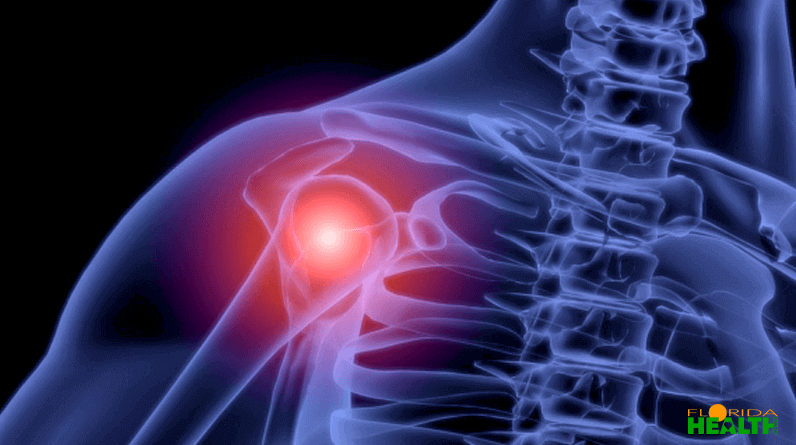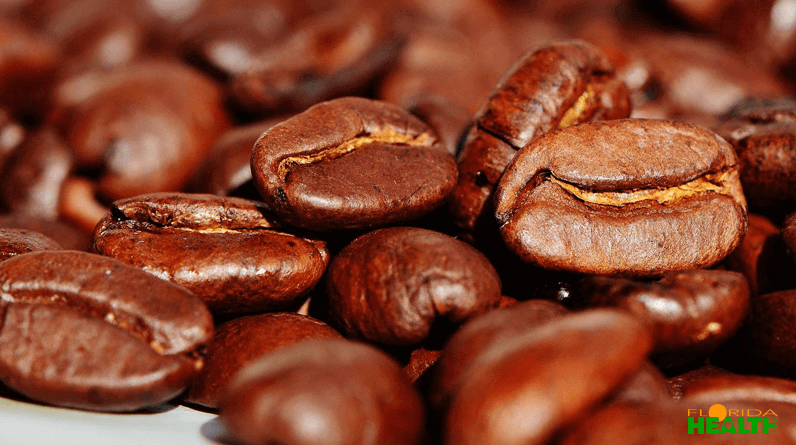
What Is An Inflammation?
Inflammation is a reaction of the body to tissue damage or to external stimuli, such as bacteria or viruses. The site of the inflammation often feels warm and can turn red, painful, or swollen. If there is no infection, we call it a ‘sterile’ inflammation.
Such inflammation can be caused, for example, by overburdening. In addition, a distinction is made between acute and chronic inflammation. Acute inflammations are often painful, but usually only last for a short time.
Chronic inflammations are usually less severe, but last longer or are even permanent. These types of inflammations are not something you would want to treat with over-the-counter anti-inflammatory drugs over the long term.
How Do Inflammations Start?
Your immune system is activated when your body detects something strange, such as invading bacteria, viruses, pollen or chemicals, as well as certain foods such as white flour (think white bread), fried foods, sugary drinks or red meat. Refined carbs raise blood sugar levels and promote inflammation that may lead to disease. This often causes a process called inflammation. Temporary inflammatory foci that target truly threatening intruders such as pathogens, protect your health.
Sometimes the inflammation lasts longer and becomes chronic. An important function in the development of inflammation is the free radicals, for example highly reactive oxygen molecules that damage important biomolecules, such as proteins, fats or your genetic material. These radicals can be neutralised by substances (so-called ‘antioxidants’) in foods.
Inflammations are Essential
Inflammations are an essential part of the body’s ability to heal. Without inflammation, wounds would fester and a simple infection could be fatal. However, too much of something good is, as always, dangerous.
Treating An Inflammation
The treatment of an inflammation depends on the cause. If a virus is the cause, the body has to solve it itself. If a bacterium is the culprit, as in pneumonia, your doctor will prescribe an antibiotic. If the inflammation is ‘sterile’, you can use an NSAID. This reduces the pain and has an anti-inflammatory effect. If the pain persists for a long time or is very severe, it is wise to see your doctor. He or she can prescribe another anti-inflammatory or see if there is another cause for your complaints.
Types of Anti-inflammatory Medication
There are different types of anti-inflammatory drugs: the so-called steroid and non-steroid. Steroid anti-inflammatory drugs are medicines that resemble hormones in our body. An example of such an anti-inflammatory is prednisone.
Painkillers are non-steroidal anti-inflammatory drugs and are therefore also called NSAIDs (Non-Steroidal Anti-Inflammatory Drugs).
The painkillers in this group are:
- Ibuprofen
- Diclofenac
- Acetylsalicylic acid (Asperin or ASA)
- Naproxen
The most well-known painkiller, paracetamol, therefore has no anti-inflammatory effect! Some NSAIDs are available without a prescription and can be bought directly at a local drugstore or sometimes even at the supermarket.
The Holistic Approach To Pain and Inflammation
And then there is the holistic way of looking at inflammation. From a holistic standpoint, all aspects of your lifestyle play a role in any infirmity and inflammations are no exception. Food is one of the easiest ways to keep inflammations under control. For Anti-inflammatory foods follow the link.
Natural Anti-inflammatories: Anti-inflammatory Herbs You Can Buy Over The Counter
Natural anti-inflammatories are foods and herbs that naturally have an anti-inflammatory effect. Acne, bronchitis, osteoporosis, multiple sclerosis, high blood pressure, dementia or cancer, and hundreds of diseases can also be caused by chronic inflammation. A chronically high level of stress, food allergies, smoking, and environmental pollutants can cause inflammation in the body.
An essential role in treating chronic inflammatory processes is the food you eat and the herbs you use. Important for a diet that should prevent or cure chronic inflammation is a high intake of antioxidants. These consist of vitamins, minerals, amino acids, essential fatty acids, trace elements, and phytochemicals.
Foods That Help Reduce Inflammation
Green Leafy Vegetables
There is a reason why these foods can be found on almost every healthy shopping list. Green leafy vegetables are packed with antioxidants that have a beneficial effect on your health. Moreover, they contain a large number of vitamins and anti-inflammatory flavonoids (phytochemicals). With a small bowl of spinach, for example, you will more than meet your daily requirement for vitamin K, which protects cells against oxidative stress (which causes the aging process). There are many different types of green leafy vegetables. Make sure you vary a lot.
Blueberries
Blueberries include quercetin (= natural dye), which is considered a powerful antioxidant that helps your body fight inflammation. Research has shown that blueberries not only contain more antioxidants than blackberries and strawberries, but also a larger number of different antioxidants.
Pineapple
Pineapple is another anti-inflammatory food. It contains the digestive enzyme bromelain, which helps regulate your immune system and prevent inflammation. In addition, bromelain can support the health of the heart. The tropical pineapple also contains many minerals and vitamins (such as vitamin C, potassium, and manganese).
Beetroot (Red Beets)
As its deep red color suggests, red beet contains the antioxidant betalain (a color pigment) that helps to repair cells that have been attacked by inflammation. Red beetroot also supports blood circulation. The red vegetables contain high levels of the anti-inflammatory minerals potassium and magnesium, two nutrients that many people are deficient in.
Broccoli and Other Cruciferous Vegetables
Broccoli, cauliflower, cabbage, Brussels sprouts, and other cruciferous vegetables are packed with antioxidants, flavonoids, carotenoids, and important vitamins such as vitamin C. These nutrients work together to reduce oxidative stress in the body and fight chronic inflammation.
Anti-inflammatory Herbs
Turmeric
Turmeric is a well-known spice that is mainly used in oriental cuisine. Curcumin, the orange-yellow dye in turmeric, is a powerful anti-inflammatory. The substance is a strong antioxidant, and antibacterial, and appears to be toxic to tumor cells.
Ginger
Ginger has anti-inflammatory properties and there is evidence that many of the constituents of ginger may limit the production of cytokines and the activity of cyclooxygenase enzymes, which promote inflammation. The anti-inflammatory properties of ginger can be useful in the treatment of various conditions, including arthritis and pain. Ginger can be eaten fresh or as a dried herb. It is also found in over-the-counter tablets, capsules, and tea. Read more about the beneficial properties of ginger here.
Anti-inflammatory Seeds and Nuts
Chia seed
These small seeds are packed full of minerals, vitamins, and essential fatty acids (such as omega-3 fatty acids) making them an excellent alternative to meat for vegetarians and vegans. Chia seed can help fight inflammation, regulate cholesterol and keep blood sugar levels low. The seed is also rich in linolenic acid, an unsaturated fatty acid that helps the body absorb the fat-soluble vitamins A, D, E, and K.
Walnuts
Walnuts are rich in omega 3 fatty acids and mineral trace elements. They are considered as brain food because they contain special phytonutrients that counteract the reduction of cognitive performance. Walnuts can calm an overactive immune system and help reduce inflammation.
Probiotic Foods
Any anti-inflammatory diet food list should include probiotics. Probiotic foods ensure a strong immune system and a healthy gut (flora). A large part of your immune system is located in the intestine and is controlled by intestinal bacteria. A microbial imbalance, when the number of harmful microorganisms exceeds the number of beneficial bacteria, is associated with an increased risk of inflammation and the risk of many diseases.
The List of Foods With Probiotic Effect Includes:
Yogurt
The best-known source of good bacteria is of course yogurt. Bacteria are often added to yogurt, but it also naturally contains a few things. The lactose in yogurt has been converted into lactic acid by lactic acid bacteria. We call this fermentation. The bacteria Lactobacillus delbrueckii ssp. bulgaricus and Streptococcus salivarius ssp. thermophilus are responsible for this. The fermentation makes yogurt easy to digest, accelerates gastric emptying, and stimulates intestinal passage. Yogurt also supports intestinal flora.
Sauerkraut
Like yogurt, sauerkraut is fermented. The fermentation keeps the cabbage much longer. The lactic acid bacteria in the sauerkraut have a beneficial effect on the intestines. Sauerkraut is also full of vitamins, especially vitamin C. The sauerkraut is much easier to digest than the white cabbage from which it is made.
Make sure you buy the sauerkraut raw as much as possible. Ready-made sauerkraut is heated in the processing process. Because of this a lot of nutrients are lost. Also when sauerkraut comes in contact with the air you lose a lot of healthy substances.
Miso soup
The basis of miso soup is a mixture of fermented soybeans, salt, and grain. In Japan, miso soup is a popular breakfast. It gets your digestive system going. Miso soup sometimes contains as many as 160 different bacterial strains. The soup is also very easily digestible, low in calories, and rich in vitamin B and all kinds of antioxidants.
Cottage Cheese
By no means do all lactic acid bacteria reach your intestines: some do not survive the journey. Research has shown that the bacteria in some fermented soft cheeses such as Cottage cheese are strong enough. Some old cheeses are also probiotics.
Kefir
It is a thick liquid, carbonated, and slightly alcoholic milk drink: kefir. The drink originates from the Caucasus. Traditionally, kefir is made from kefir grains that are added to milk to cause fermentation. In factory-produced kefir, a mixture of bacteria and yeast is added.
Gherkins
Gherkins are also often fermented. Do you eat gherkins to stimulate your intestinal flora? Then choose salted gherkins without vinegar. A solution of sea salt and water promotes the growth of good bacteria, so the benefits for your digestion are greatest.
Tempeh
Tempeh is made from fermented soybeans. That’s why it’s also seen as a natural antibiotic. On top of that, tempeh is rich in protein.
Kombucha tea, Algae (spirulina and chlorella), Kimchi and Olives are also probiotics.
Five Major Foods That May Cause Or Promote Inflammation
Sugar:
According to researchers, the intake of large amounts of sugar causes inflammatory stress at the cellular level.
Fat:
Fats play a major role in the development of inflammation.
Milk products:
Milk contains many androgens. Androgens are hormones that ensure growth. These androgens, such as IGF-1 and testosterone, do not cause inflammation in the body, but on the skin in the form of acne.
Industrial beef:
Industrial meat and fish are fed unnatural foods such as wheat, corn, and soy. It is rich in omega 6. Wheat contains 20 times more omega 6 than omega 3.
Alcohol:
If you drink one glass a day, the inflammation markers drop in your blood. But if you drink more, the inflammatory markers increase. Researchers suspect that this is partly because with larger amounts of alcohol the intestinal flora is disturbed and can no longer cope with the excretions of the wrong bacteria. Alcohol, therefore, has a negative influence on inflammatory bowel diseases.
Conclusion:
In many cases, the source of inflammation can be traced back to (over) consumption of a particular food or lifestyle. If you are looking for over-the-counter anti-inflammatory medication for chronic low-degree inflammations, your best bet is to consult a medical professional and review your diet. In many cases, a small change in your eating habits can make a big change in your overall health.
Further Reading and Research:
www.ncbi.nlm.nih.gov
www.sciencedirect.com
www.ncbi.nlm.nih.gov
www.ncbi.nlm.nih.gov
https://nutritiondata.self.com
www.ahajournals.org
https://mens-en-gezondheid.infonu.nl

Carl Riedel is an esteemed online researcher and writer, specializing in the intersection of technology and wellness. As a member of the International Association of Therapists, Carl brings a unique perspective to his work, skillfully integrating insights from therapy and digital trends. His articles help readers navigate the complexities of the digital age with an emphasis on promoting mental and emotional well-being.




